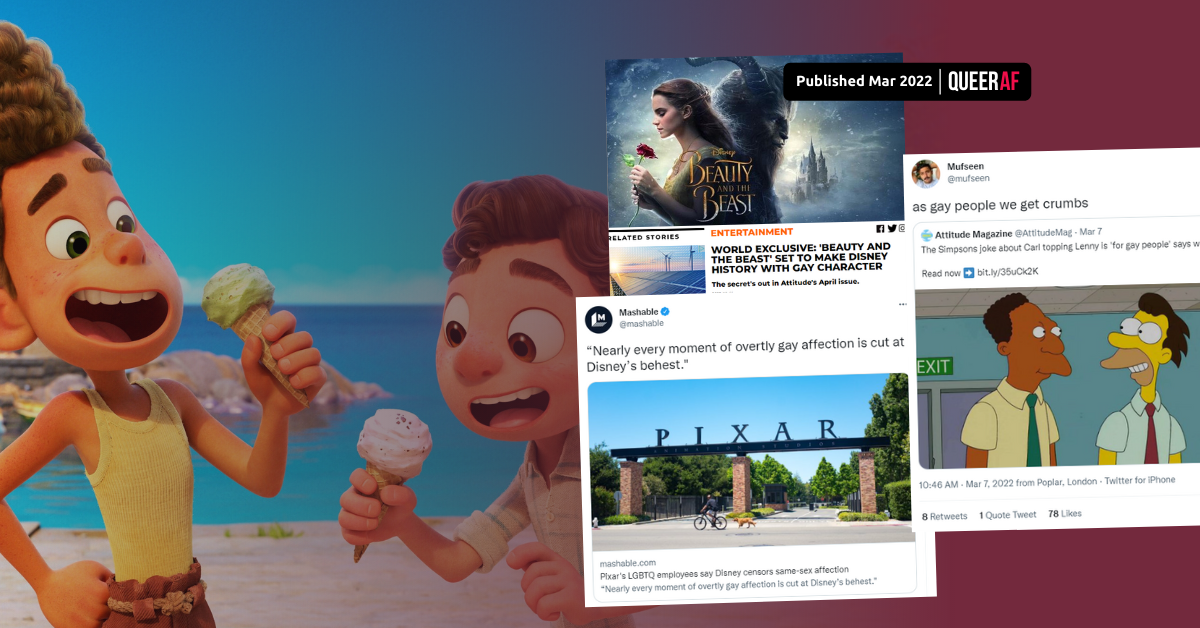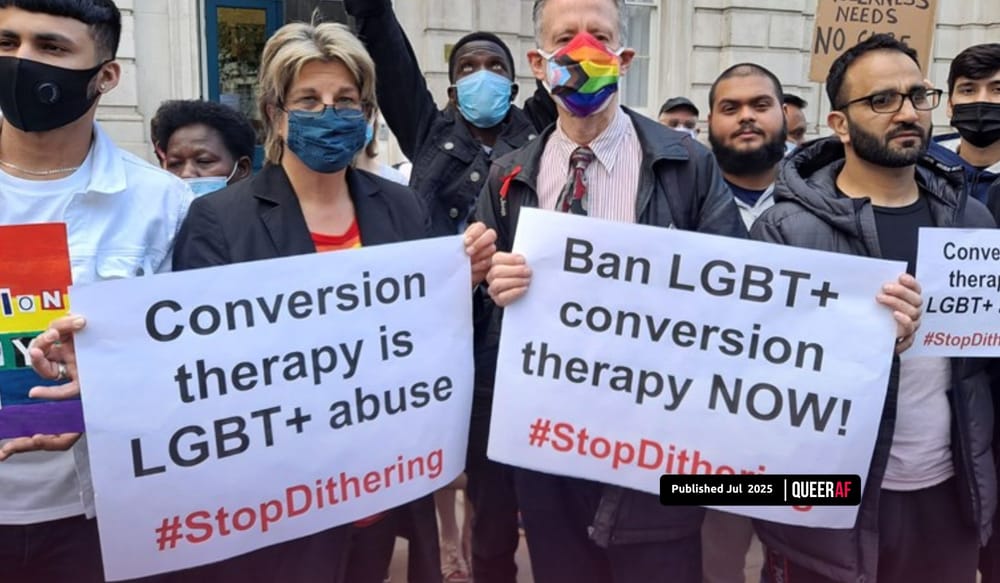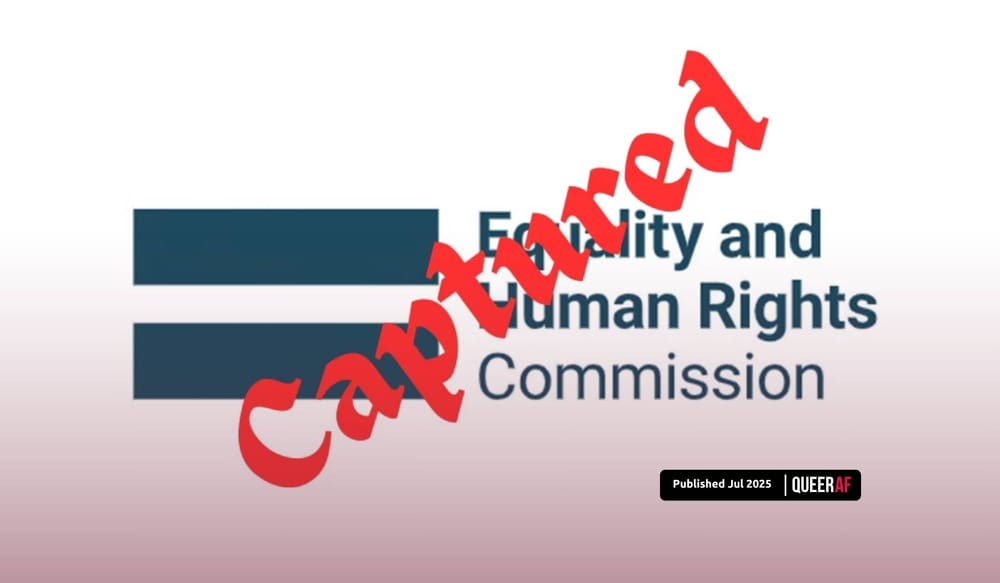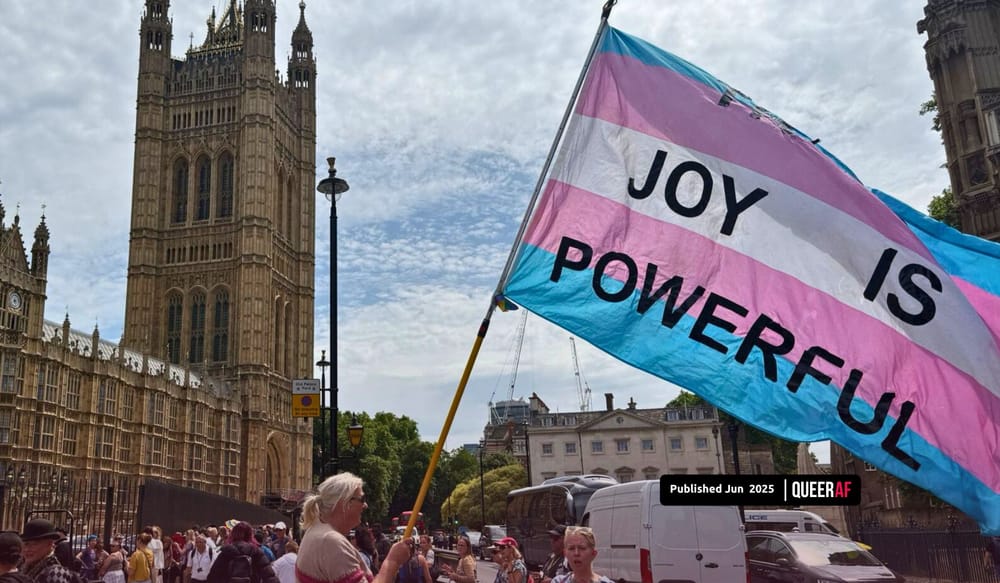
As a rule, I don't talk about corporates who stick rainbows on cars and logos in QueerAF - there is plenty of that advertising elsewhere. But when a corporation that has been using those tactics to convince us they've changed - also directly funds anti-LGBTQIA+ legislation, we can't ignore it. Let's talk about Disney and the Parental Rights Bill.
What is the bill about?
I talk about Section 28 a lot. The UK law banned schools from talking about being gay between 1988 and 2000. I was at school then, and know first hand the shadow it cast over our education. That's why media debates creating a similar effect now are so worrying. - QueerAF
Florida's 'Parental Rights' bill is not much different to Section 28. It will stop schools from discussing LGBTQIA+ matters with kids in grade three or below (ages 8 and 9).
It's had international attention after President Biden and a swathe of Hollywood actors decried the bill. - BBC
The Republicans, who sponsor the bill, say it protects kids from “inappropriate” content, while LGTBQ advocates warn it could lead to higher suicide rates among queer youth. - Tangle
I've been in queer journalism for long enough to assure you, it’s the same old recycled debate we’ve heard for years.
Why is Disney in trouble?
Because it has given money to sponsors of the bill - Vulture
And it took a great deal of time to finally reverse the decision not to oppose the bill - The Financial Times
Our community has long criticised Disney for its failure to represent us properly. But in the last few years, there had appeared to be signs of a relatively significant change.
It started with a big Attitude Magazine special cover reveal: "Beauty and the Beast set to make history with gay character". A scoop for sure. Disney portraying gay people? It was unheard of in 2017.
But when the film was released this moment of ‘representation’ was blasted by fans. It was only about 5 seconds long and based on a 'look' - not even a kiss.
Still, fast forward to recent releases and there is reason to celebrate. Notable examples include Love Victor by 20th Television - a Disney brand - and the adorable gay couple in High School Musical: The Musical: The Series.
However, this month saw two additional major queer PR fails for the corporation. First came the damning news that Luca, the nearly-gay Pixar animation movie, did have scenes with same-sex affection - until Disney execs intervened. - Variety
Then there was the UK media exclusive in Attitude Magazine, with The Simpsons - now owned by Disney - trailing 'a big gay moment’. When it aired? The episode was about Waylan Smither and his boyfriend. But with the lame gay sex joke, that most of the media focused on, it still felt like "crumbs" of representation for some.
as gay people we get crumbs https://t.co/5jlPbJjalq
— Mufseen (@mufseen) March 7, 2022
Disney is setting itself up to fail
I've spent many years working in the media, including for LGBTQIA+ titles. When big exclusives happen, by and large, they come as part of one of two types of deals. Both see the vast majority of editorial control handed over for financial reasons.
Either the company offering the story provides direct sponsorship revenue, or they make editorial control a condition of guaranteeing the exclusive. Media outlets often take these deals, betting on the print sales or ad revenue that an exciting exclusive generates.
When big corporates or entertainment exclusives are about, editorial becomes PR.
Disney has deployed all the usual tactics to change their gay credits, from big press reveals to pride floats. Yes, they've even edged towards better representation on-screen.
They want to move us away from thinking their only LGBTQIA+ characters are the queer coded malevolent villains. They count on the nostalgia for classic Disney films that many of us cling to, where this poor representation happens. After all, growing up, it was all we had.
But their funding for Don't Say Gay's sponsors could be a watershed moment - the spark for a broader pushback from fans. By 'supporting' our rights with tacit Pride marketing and commissioning queer content, they've set themselves up to fail.
A new generation has grown up with much stronger LGBTQIA+ representation on-screen. They won't forgive Disney's support for Don't Say Gay.
It could well be the moment they lose their last vestige of support from the rest of the community. Nostalgia won't be enough to persuade us we should support a company that wants to ban talking about our lives in schools. Not when so many of us grew up knowing just how painful that was.
This article was just one part of our weekly newsletter that summarises, understands and explains the news of the week.

I started QueerAF to fund queer media careers.
Behind the scenes, we are supporting underrepresented and emerging queer creatives to kickstart their career.
This, while we build a community-centred platform that works for our community, not advertisers. We commission content for our free weekly newsletter because it counts, not for clicks.
We need to support a new generation of queer voices who can go on to change the media.
Will you join QueerAF members like comedian Joe Lycett and the MD of Forbes in Europe, to make that possible?













